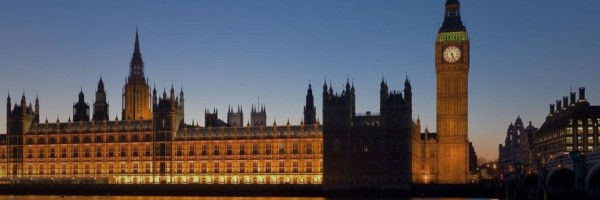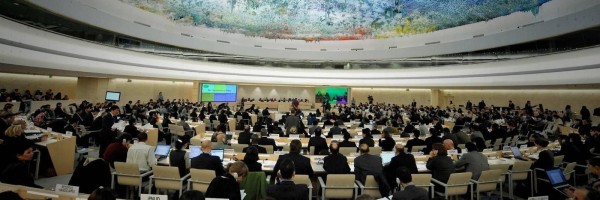12 October 2022 marks the 13th anniversary of the establishment of the Saudi Association for Civil and Political Rights (ACPRA), whose members are pioneers and champions of the Saudi human rights movement. ACPRA was established in October 2009 to promote and protect fundamental rights and freedoms in Saudi Arabia. It was never legally recognised by the government, yet was only formally banned in 2013. All of its members have been prosecuted and subjected to severe retaliation by the Saudi authorities for their human rights activism and cooperation with United Nations human rights mechanisms.
ACPRA was founded with the aim of promoting and safeguarding the fundamental human, civil and political rights of all Saudi citizens. The association peacefully advocated for a constitutional monarchy, a universally elected parliament, an independent judiciary and the protection of fair trial rights in Saudi Arabia. ACPRA further documented cases of human rights violations within the kingdom, helped victims to file legal claims against the officials responsible, and communicated them to foreign NGOs and the relevant UN Special Procedures.
In 2013, the association was dissolved by the Saudi authorities and all its members prosecuted. Many of them were charged under the 2014 Law on Terrorism and its Financing, which defines terrorism in vague and broad terms, and were sentenced by the Specialised Criminal Court to lengthy prison sentences ranging from four to 15 years. The members of ACPRA all faced vaguely defined charges such as “insulting the judiciary”, “calling to break allegiance with the ruler”, “accusing the judiciary of being unable to deliver justice”, “communicating with international organisations in order to harm the image of the State” and “forming or joining an illegal organisation”.
The prosecuted members of ACPRA are: Issa al-Hamid sentenced to (nine years in prison followed by a nine-year travel ban); Dr Abdulrahman al-Hamid (nine years in prison, nine-year travel ban); Dr Abdulkarim al-Khoder (10 years in prison, 10-year travel ban); Omar al-Saeed (seven years in prison, seven-year travel ban; he was released in 2015); Mohammed al-Bajadi (eight years in prison, four of them suspended, and a 10-year travel ban; he was released in 2016 after more than five years in detention, was re-arrested in May 2018, and is currently detained without charge); Sheikh Sulaiman al-Rashudi (15 years in prison, 15-year travel ban; he was released after serving six years of his sentence); Dr Abdullah al-Hamid (11 years in prison, 11-year travel ban; he died in detention following repeated medical neglect after serving seven years of his sentence); Dr Mohammed Fahad al-Qahtani (10 years in prison, 10-year travel ban); Fawzan al-Harbi (10 years in prison, 10-year travel ban); and Abdulaziz al-Shubaily (eight years in prison, eight-year travel and social media ban).
The members of ACPRA are subject to several complaints by the UN Special Procedures and the UN Working Group on Arbitrary Detention, who have expressed grave concern over their prosecution and arbitrary detention and have called for their immediate and unconditional release. Most recently on 30 September 2020, in the presentation of the annual report on reprisals, the UN Secretary-General (UNSG) called attention to the arbitrary detention and of Issa al-Hamid, Fawazan al-Harbi, Mohammed al-Qahtani and Abdulaziz al-Shubaily for cooperating with the human rights mechanisms of the United Nations. The UN Secretary-General further recalls the denial of adequate medical care for Dr Abdullah al-Hamid’s, which caused his subsequent death in detention.
Visionary human rights defender and co-founder of ACPRA, Dr Abdullah al-Hamid, died at age 69 on 23 April 2020 at the King Saud Medical City Hospital after suffering a cerebral stroke. He spent many months in prison in a critical state of health, suffering from a cardiovascular disease, but was denied the medical care he needed, including surgery. Despite his deteriorating health, advanced age and the rapid spread of COVID-19, the Saudi authorities refused to release Dr al-Hamid. On 9 April 2020, he lost consciousness but was only transferred four hours later to the King Saud Medical City Hospital, where he was diagnosed with a severe cerebral stroke that left him in a coma, and of which he ultimately died in the evening of 23 April 2020.
However, Dr Al-Hamid’s legacy as a human rights pioneer, and his vision of a Saudi Arabia in which people are politically represented and governed by the rule of law, lives on. In view of his tragic death in detention, now is a critical time to remember the other members of ACPRA.
On the occasion of the 13th anniversary of the establishment of ACPRA, ALQST therefore calls on the Saudi authorities to immediately and unconditionally release ACPRA members, as well as all human rights defenders and prisoners of conscience.




